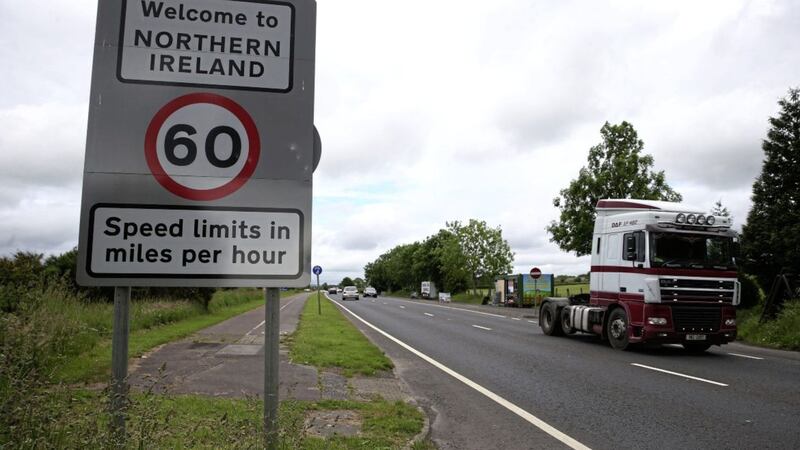The level of goods traded across the Irish border is at an all-time high, officials said.
It stands at £6.1 billion for 2017, an all-island organisation established after the Good Friday Agreement added.
Northern Ireland makes up between 10-12% of total exports from Ireland to the UK and accounts for 7-8% of imports.
Aidan Gough, director of strategy at InterTradeIreland, said total cross-border trade in goods was at an "all-time high".
"For a population size of just 2.9% of the UK total these trade figures with our nearest neighbour are substantial and highlight growing cross-border co-operation and the associated dividends for Northern Ireland businesses."
Total cross-border trade in goods has been growing at an average rate of 4% a year over the past 20 years, the north/south body said.
A no-deal Brexit may lead to a hard border, a European Commission spokesman has suggested.
Margaritis Schinas was asked whether the EU commitment's to the peace process would last "whether or not there is a deal".
He replied: "If you like to push me and speculate on what might happen in a no-deal scenario in Ireland, I think it's pretty obvious, you will have a hard border.
"Our commitment to the Good Friday Agreement and everything that we have been doing for years with our tools, instruments and programmes will have to take inevitably into account this fact.
Asked about the EU's commitment to Northern Ireland, Mr Schinas added: "I can reiterate our commitment to the Good Friday Agreement, I can reiterate our commitment and support to peace and trans-border co-ordination on which we have been investing for years.
"But a no-deal Brexit will clearly, clearly, put most of these things at risk and this is something that we would need to address in the framework of our contingency work with Ireland."
"So, of course, we are for peace, of course we stand behind the Good Friday Agreement, but that's what a no-deal scenario would entail.
Sinn Féin president Mary Lou McDonald said it was "very concerning" that British PM Theresa May had not removed the option of a no-deal from the table.
Speaking outside the Dáil, Ms McDonald said: "As each day and as each week passes, we come perilously closer to the prospect or at least the possibility of a crash Brexit."
She added that it was a scenario that could happen as much by accident as by design.
Discussing the backstop, Ms McDonald said it was "absolutely essential that cool-heads" prevailed and that the Dublin government did not blink irrespective of what pressure tactics or what overtures are made from London.
"The negotiation on the Withdrawal Agreement and the backstop is over. That passage of play is finished and there's no room to go back and unpick those matters," she said.
But she said if an alternative proposal, something like a Norway-plus type arrangement, was brought forward with the support of Westminster, she imagined that the European institutions would consider it.
Ms McDonald added: "I do think it's concerning that the clock is ticking and although there's a parliamentary majority [in Westminster] that says we don't want a hard border, we don't want a crash, that the prime minister still is not willing to officially take that option off the table.
"I think that's extremely unhelpful, I think that raises tensions. It raises concerns."
Northern Ireland exports to the Republic were worth some £3.9bn to the local economy in 2017, with 758,000 cross-border deliveries.
In addition, there were approximately 410,000 import deliveries in 2015 from the Republic to Northern Ireland businesses worth nearly £2bn, not including financial and farm sectors.








